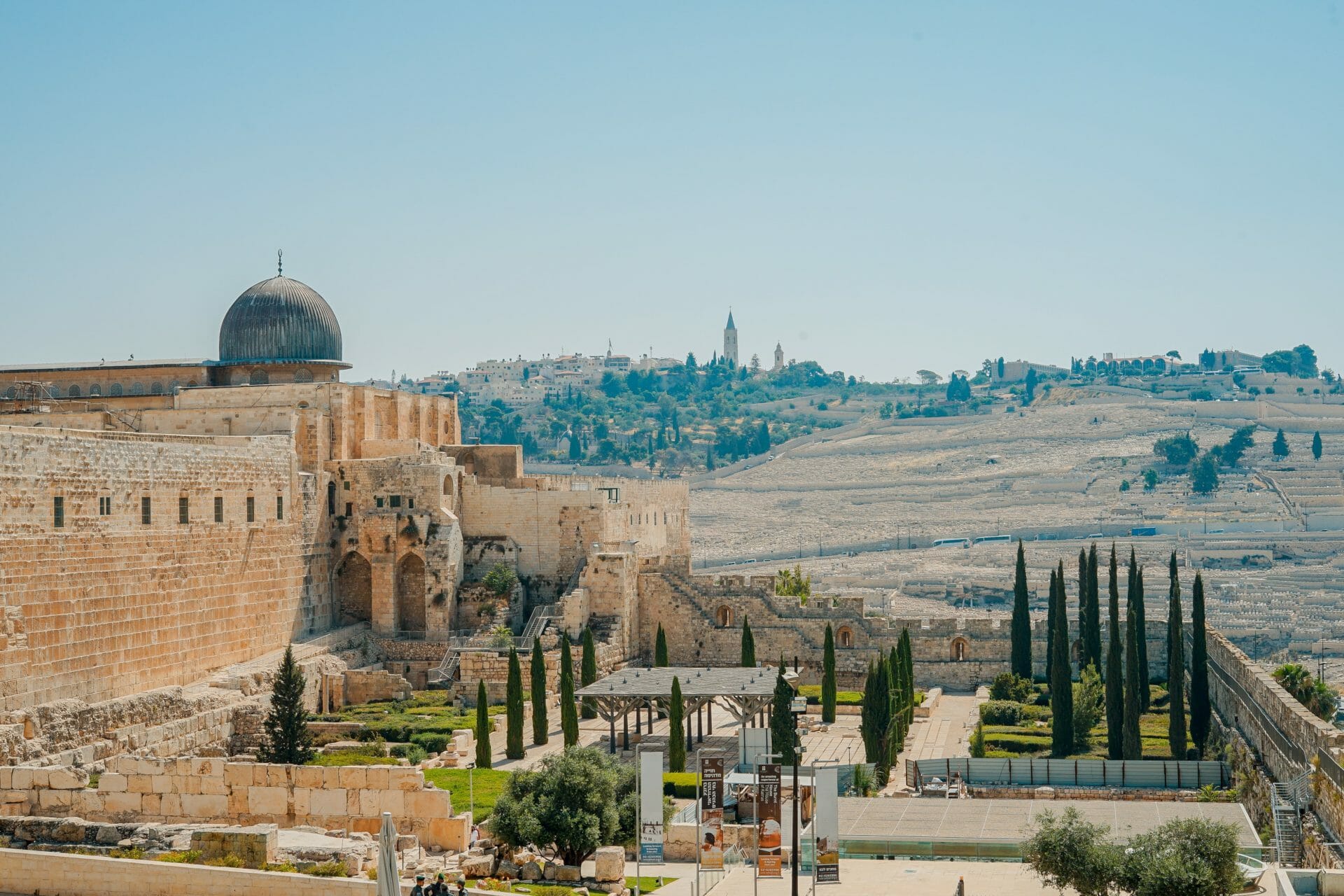
Photo by Toa Heftiba on Unsplash
What was Jesus doing during Lent?

Rev. John Zehring
March 18, 2021
Jesus had a bullseye on his back since his birth, as hundreds of professional hit men with a contract on his life tracked him down: “Now after they had left, an angel of the Lord appeared to Joseph in a dream and said, ‘Get up, take the child and his mother, and flee to Egypt, and remain there until I tell you; for Herod is about to search for the child, to destroy him.’” (Matthew 2:13). The death threats continued throughout Jesus’ three years of public ministry: “And when the chief priests and the scribes heard it, they kept looking for a way to kill him; for they were afraid of him, because the whole crowd was spellbound by his teaching.” (Mark 11:18). What if they had succeeded earlier than they did? What would we have missed?
Jesus was moving his center of gravity toward Jerusalem in the weeks before the sudden finality to his few years of teaching and preaching. The observation of Lent did not start until a few centuries later, when it was finalized by the Council of Nicaea, but in those weeks before his crucifixion and resurrection, Jesus was journeying towards Golgotha.
No one wants to die at age thirty-three, the age Jesus was when he seemed to know that death was imminent. As he did in so much of his life, when he needed clarity or had something important to consider, he went to the mountain. This time it was known as the Transfiguration, which was a continental divide in his life. Jesus went to the mountain to confirm with God about the decisive step he was about to take. He knew he was on the way to the cross. Yet he had to make sure one last time that he was doing what God wished him to do. He needed to make certain that it was God’s will that he should continue toward Golgotha. Atop that mountain, he heard the voice telling him that he was right to go on… to die.
In the last few weeks of his purple journey – purple is the color of Lent – what final teachings did Jesus share with the world? Which of these teachings would humankind have lost, had the conspiracy to end his life succeeded before his purple journey? We could have lost…
The mustard seed. On his journey to Jerusalem Jesus taught: “if you have faith the size of a mustard seed, you will say to this mountain, ‘Move from here to there,’ and it will move; and nothing will be impossible for you.’” (Matthew 17:20). The mustard seed is the smallest of seeds. You do not need the towering faith of a saint or the mature wisdom of a life tempered by experience. It is enough to come to Jesus with whatever faith you have. The mustard seed illustration invites you to trust that your faith is sufficient for God to use, and to believe that nothing will be impossible for you.
Become like children. On his purple journey, Jesus blessed the children and gave a promising assurance that faith in God and access to the Almighty is available to those with the simplest of faith. “Truly I tell you, unless you change and become like little children, you will never enter the kingdom of heaven.” (Matthew 18:3). Faithfulness is what God wants from you. We humans intensely want to know what God expects of us. Here is the answer: faithfulness. When you consider the entire Bible and think it is all a matter of rules, regulations, thou-shalt-nots or self-sacrifice, then consider again. What God wants is for you to be God’s faithful child: to love, to obey and to follow. Perhaps that is why Jesus asked his followers to become like children. God does not call you to be successful. God calls you to be faithful.
Jesus was moving his center of gravity toward Jerusalem in the weeks before the sudden finality to his few years of teaching and preaching. The observation of Lent did not start until a few centuries later, when it was finalized by the Council of Nicaea, but in those weeks before his crucifixion and resurrection, Jesus was journeying towards Golgotha.
The two great commandments. These are the foundation of the Christian faith: “‘You shall love the Lord your God with all your heart, and with all your soul, and with all your mind.’ This is the greatest and first commandment. And a second is like it: ‘You shall love your neighbor as yourself.’” (Matthew 22:37-39). Jesus took the great Jewish Shema from Deuteronomy (6:5) and turned it into Christianity’s greatest commandment, except that he added one word: mind. This reminds us that our love for God should also be a thinking faith as well as a feeling faith.
The parable about “the least of these” which is also known as the Parable of the Sheep and the Goats. We are profoundly eager to know: how will God judge us? Answer: When God judges, God will favor those who helped people in need. The NRSV translates Matthew 25:40: “Truly I tell you, just as you did it to one of the least of these who are members of my family, you did it to me.” What we do to the “least of these” we do to God. Conversely, what we do not do to those in need, we fail to do to God. When we help those in greatest need on the margins of our society, perhaps we will hear the King say: “Whenever you did one of these things to someone overlooked or ignored, that was me – you did it to me.”
The two last suppers of his final week. The first came in Bethany, because that is where Jesus stayed whenever he came to Jerusalem, with his personal best friends Lazarus, Martha and Mary. In one of the most tender acts of extravagant love recorded in the Bible “Mary took a pound of costly perfume made of pure nard, anointed Jesus’ feet, and wiped them with her hair. The house was filled with the fragrance of the perfume.” (John 12:3). The second was the Last Supper, a celebration of Passover with the disciples when they broke the bread and shared the cup. Jesus said, “Do this in remembrance of me.” And then, he was betrayed by one he trusted.
Jesus’ garden prayer with its powerful example of surrender to God: “And going a little farther, he threw himself on the ground and prayed, ‘My Father, if it is possible, let this cup pass from me; yet not what I want but what you want.’” (Matthew 26:39). This has served as a guide for how we are to pray: pray specifically for what you want, but let every prayer yield to what God wants.
There must have been so much more. “As he went ashore, he saw a great crowd; and he had compassion for them, because they were like sheep without a shepherd; and he began to teach them many things.” (Mark 6:34). The phrase “many things” occurs in a number of Gospel passages, suggesting how much more Jesus taught that we do not know about. And yet, we might have missed the core of his message, had he been killed earlier
Jesus, on his purple journey, faced injustice, unequal treatment, and unfairness. Yet his final few teachings remain the cornerstone of Christianity: love God. Seek to be faithful. Become like children. Attend to those in greatest need. Seek God’s will, and choose to yield to it. And, even upon the cross… “Father, forgive them…” (Luke 23:34).
The Rev. John Zehring has served United Church of Christ congregations for 22 years as a pastor in Massachusetts, Rhode Island and Maine. He is the author of more than 30 books and e-books. His most recent book from Judson Press is “Get Your Church Ready to Grow: A Guide to Building Attendance and Participation.”
The views expressed are those of the author and not necessarily those of American Baptist Home Mission Societies.


